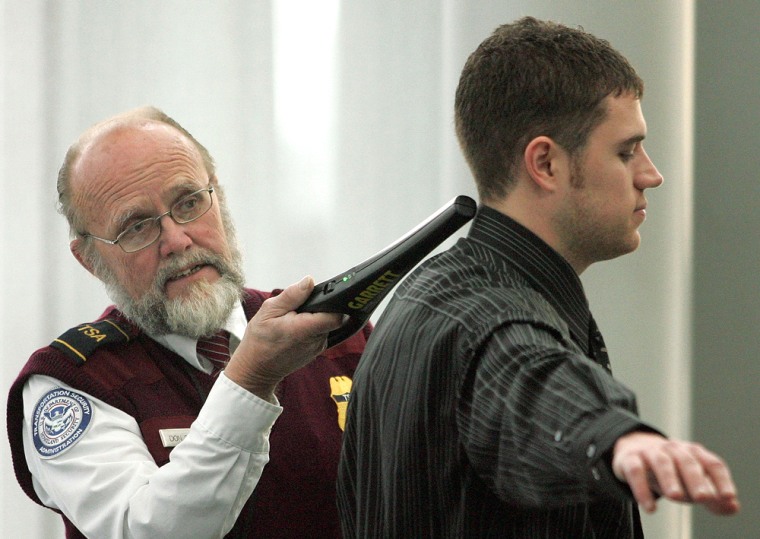The U.S. Transportation Security Administration will soon use more behavioral profiling at American airports to detect suspicious activity, a top official said Thursday.
TSA Director Kip Hawley said the agency would expand a pilot program that has trained officers to observe passengers’ behavior currently at about a dozen airports. He said it will be expanded after the summer travel rush.
“We are looking at expanding ... as another layer of security,” Hawley said. “We have been very pleased with its effectiveness. We expect it to be an important part of our security going forward.”
TSA officials would not identify which “highest risk” airports will be included in the expanded program.
The program began at Boston’s Logan International Airport -- the departure point for the two hijacked airplanes that were crashed into the World Trade Center on Sept. 11. It is also being implemented in Miami among other airports.
Lessons from overseas
George Naccara, the federal security director at Logan, said the TSA program is modeled on behavior detection systems used in Israel and some other countries.
“It’s been very effective overseas,” Naccara said, where the effort “is much more confrontational and much more aggressive.”
Officers are taught to look for abnormal behavior in passengers, such as people wearing coats when it’s warm in order to disguise bombs, or people acting fidgety or nervous.
Naccara said they look for signs of “stress, fear and deception.”
“We associate that with people who are doing something wrong -- some kind of criminal or terrorist intent,” he said.
The officers must be able to differentiate between nervous travelers and those having something to hide, he added.
Form of racial profiling?
Some civil rights groups have complained the program involves racial profiling. The American Civil Liberties Union has sued the Massachusetts Port Authority over its behavior pattern recognition program.
TSA officials said race is not used to monitor passengers. Officers fill out a score sheet identifying behaviors that trigger extra screening for a passenger or police attention.
“The vast majority of those referred to law enforcement ... do in fact have something wrong,” said Hawley. “They are either illegal for false ID, immigration status, drugs or prohibited items.”
